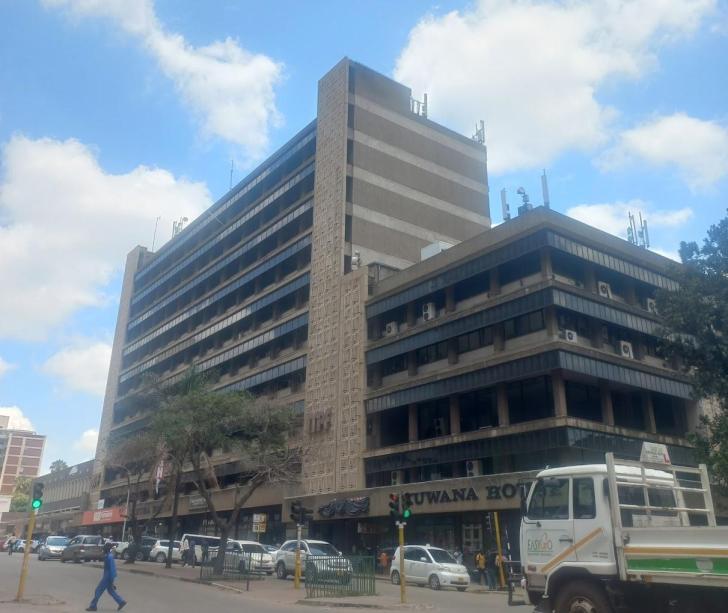Opinion / Columnist
Windfall for 33,000 pensioners
04 Nov 2024 at 06:49hrs |
0 Views

The Mining Industry Pension Fund (MIPF) is preparing to compensate pensioners who lost benefits during Zimbabwe's hyperinflationary period between 2006 and 2009. The initiative comes amid reports that over 33,000 pensioners have yet to claim their benefits, with some individuals set to receive compensation amounts nearing US$100,000.
This announcement was made by MIPF Bulawayo branch manager Perseverance Dube during a recent regional meeting of the Zimbabwe Diamond and Allied Minerals Workers Union in Gwanda. Dube stated, "We are paying compensation for everyone who lost pension benefits between 2006 and 2009. If it means liquidating some of the MIPF assets to do that, it will be done. Some of the pensioners - around 10 or fewer - will be given US$100,000 or so, but they are few of them."
The MIPF is actively working to ensure that those who suffered losses receive their due compensation. Dube urged individuals who know affected pensioners to inform them to visit MIPF offices to claim their benefits.
In 2015, former President Robert Mugabe established a commission of inquiry to investigate the loss of value in life insurance policies and pensions due to the shift from the Zimbabwe dollar to a multicurrency system in 2009. The Justice George Smith-led inquiry found that many policyholders and pension scheme members were prejudiced during this transition, recommending compensation for the affected individuals.
Following the inquiry's findings, the government issued the Pensions and Provident Funds (Compensation for Loss of Pre-2009 Value of Pension Benefits) Regulations in 2023. These regulations were designed to address the loss of value experienced by pension members from January 1, 2000, to February 28, 2009, ensuring that they are compensated to the fullest extent practicable. The Insurance and Pensions Commission has mandated that insurers and pension funds submit compensation plans, including lists of eligible policyholders and the amounts owed, by December 31.
The meeting held by the Zimbabwe Diamond and Allied Minerals Workers Union aimed to adopt a strategic plan framework to enhance union power, secure jobs, and address the benefits and pensions of retired and retiring mine workers. Dube highlighted that, alongside contributions to the National Social Security Authority (NSSA), mine workers contribute 7.5% to the MIPF for occupational pension schemes, which are tailored to meet the specific needs of various industries.
However, concerns about working conditions in the mining sector persist. Workers from mines around Gwanda reported issues such as inadequate accommodation, a shortage of personal protective equipment, low wages, victimization by employers, and hazardous working environments.
A representative from the Mines Ministry in Matabeleland South, identified only as Mutseka, noted that while there are approximately 5,000 mines in the province, the number of inspectors available to conduct inspections is insufficient to cover the area adequately.
As MIPF moves forward with compensation efforts, the call for improved working conditions in the mining sector remains urgent, with workers seeking better protections and support from their employers and government agencies.
This announcement was made by MIPF Bulawayo branch manager Perseverance Dube during a recent regional meeting of the Zimbabwe Diamond and Allied Minerals Workers Union in Gwanda. Dube stated, "We are paying compensation for everyone who lost pension benefits between 2006 and 2009. If it means liquidating some of the MIPF assets to do that, it will be done. Some of the pensioners - around 10 or fewer - will be given US$100,000 or so, but they are few of them."
The MIPF is actively working to ensure that those who suffered losses receive their due compensation. Dube urged individuals who know affected pensioners to inform them to visit MIPF offices to claim their benefits.
In 2015, former President Robert Mugabe established a commission of inquiry to investigate the loss of value in life insurance policies and pensions due to the shift from the Zimbabwe dollar to a multicurrency system in 2009. The Justice George Smith-led inquiry found that many policyholders and pension scheme members were prejudiced during this transition, recommending compensation for the affected individuals.
The meeting held by the Zimbabwe Diamond and Allied Minerals Workers Union aimed to adopt a strategic plan framework to enhance union power, secure jobs, and address the benefits and pensions of retired and retiring mine workers. Dube highlighted that, alongside contributions to the National Social Security Authority (NSSA), mine workers contribute 7.5% to the MIPF for occupational pension schemes, which are tailored to meet the specific needs of various industries.
However, concerns about working conditions in the mining sector persist. Workers from mines around Gwanda reported issues such as inadequate accommodation, a shortage of personal protective equipment, low wages, victimization by employers, and hazardous working environments.
A representative from the Mines Ministry in Matabeleland South, identified only as Mutseka, noted that while there are approximately 5,000 mines in the province, the number of inspectors available to conduct inspections is insufficient to cover the area adequately.
As MIPF moves forward with compensation efforts, the call for improved working conditions in the mining sector remains urgent, with workers seeking better protections and support from their employers and government agencies.
Source - newsday
All articles and letters published on Bulawayo24 have been independently written by members of Bulawayo24's community. The views of users published on Bulawayo24 are therefore their own and do not necessarily represent the views of Bulawayo24. Bulawayo24 editors also reserve the right to edit or delete any and all comments received.
Join the discussion
Loading comments…































